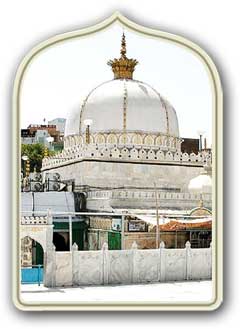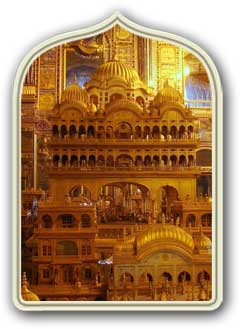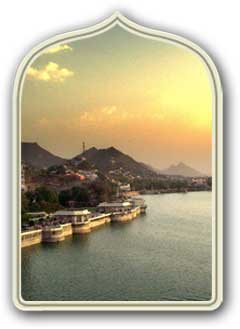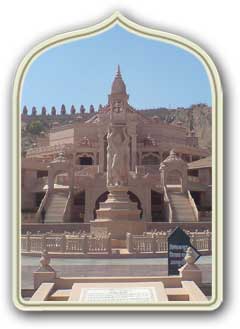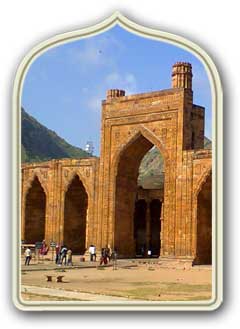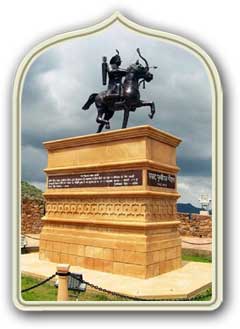
 Prithviraj Smarak Ajmer
Prithviraj Smarak Ajmer 
Prithvi Raj Chauhan (originariamente Prithvi Raj III) fu l'ultimo sovrano del lignaggio di Chauhans. Fu incoronato per governare le due capitali gemelle di Delhi e Ajmer nel 12 ° secolo. Era considerato come un'epitome di coraggio e patriottismo.
In questa scultura al Prithviraj Smarak, il cavallo viene mostrato con uno zoccolo in aria. Nel simbolismo della scultura equestre, sembra suggerire che Prithvi Raj Chauhan sia stato giustiziato dopo aver perso la battaglia. Pertanto, sembra probabile che il riferimento sia verso la Seconda Battaglia di Tarain (1192), in cui l'imperatore fu ucciso dall'esercito Ghurid di Maometto Ghori. Pertanto, lo Smarak è anche famoso come memoriale di guerra di Prithviraj Chauhan.
Il sito storico costruito tra graziosi giardini di passaggio sulle colline offre un'incredibile vista della città di Ajmer. L'incantevole vallata, circondata dalle colline della catena di Aravalli, sembra bellissima dal Prithviraj Smarak. La vista diventa superlativa sotto il cielo rosso mentre il sole scende nell'orizzonte.
Dal momento che non c'è molto altro da esplorare al memoriale, puoi visitare altre destinazioni turistiche vicine in un solo giorno. Il lago Foy Sagar e il forte Taragarh si trovano a pochi chilometri di distanza e sono consigliati.
Cosa da Vedere Ajmer
Ajmer, the ‘Heart of Rajasthan’ or the ‘City of Unity’ is truly one of the most divine and stunning tourist places in Rajasthan. Guarded by the majestic Aravalli Mountains and located around 135km from Jaipur; the capital city of Rajasthan, this ancient city is a melting point of various castes, creeds, culture, and traditions.
Founded during the late 7th century A.D. by Ajayraj Chauhan, Ajmer was initially known as ‘Ajayamru’ (Local Meaning: Invincible Mountain) and was ruled majorly by the Chauhan Dynasty. Steeped with glimpses of history, the city witnessed several upbringing and downfalls along the course of time. Ruled by the Chauhans, Mughals, Marwar, Marathas, Rajputs, and British, Ajmer is a true testimony to Rajasthan’s golden past!
Whether a Hindu or a Muslim, devotees across the country visits Ajemr with equal devotion, faith and dedication. Being the base for visiting the holy land of Pushkar; only 14km away, and also the burial ground of profound Sufi saint Khwaja Moinuddin Hasan Chisti, the city witnesses a large number of pilgrims every year. Owing to this fact, it is regarded as one of the ideal ground where ‘Unity in Diversity’ and communal harmony can be witnessed in its best form.
In addition to all this, Ajmer is also known for Mayo College, which is regarded as the first school in India to incorporate British style of education in the country. Ajmer, in a nutshell, is more than just a famous tourist destination in Rajasthan. It is one such city where time slows down and ushers the hymns of Rajasthan’s bygone era!
 +91-9799050299
+91-9799050299 

